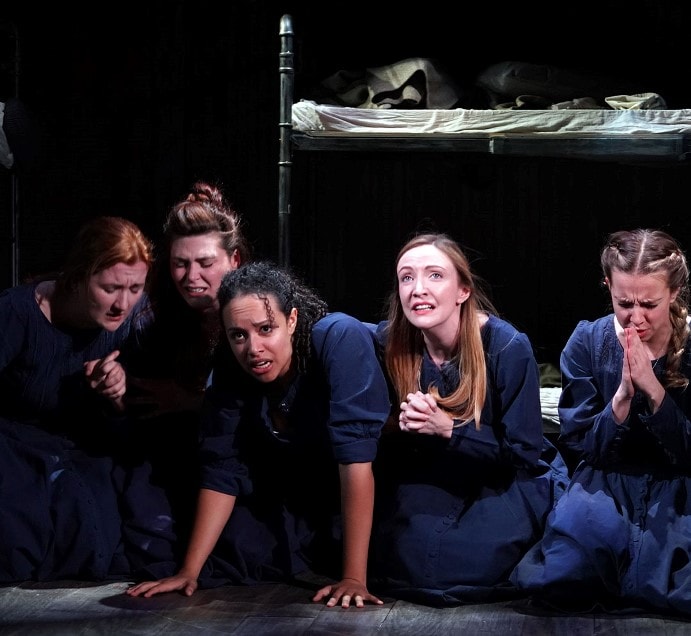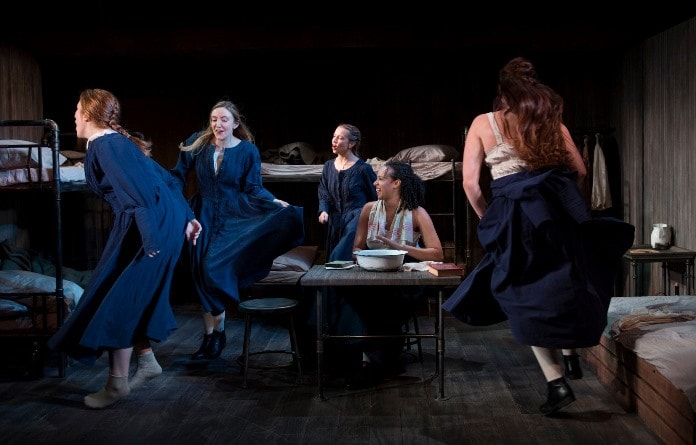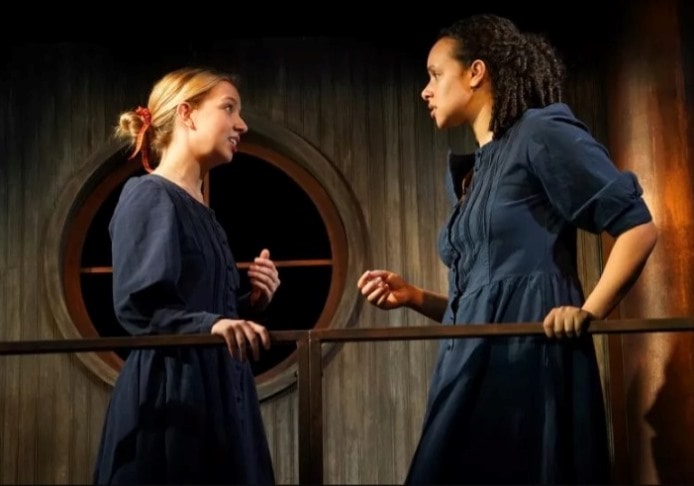When the Irish Potato Blight – caused by an infectious fungus that spread throughout Europe – struck in 1845, it decimated the country’s staple crop, leading to food shortages and the Great Famine of 1845-52. During that time, approximately one million people died and another 2.1 million fled the island, resulting in an estimated 25% decline in the population. Another one of the devastating consequences was the increase in the number of orphaned children in Ireland, with many young girls being sent to local workhouses, and some young women turning to prostitution to provide for themselves.

To alleviate the problems of overcrowding in the workhouses and the financial burden on Irish landlords who financed the workhouse system, Earl Grey, the British Secretary of State for the Colonies (and namesake of the popular tea), initiated the Orphan Emigration Scheme in October 1848. Under it, “morally pure” girls from the Irish workhouses, between the ages of 14-18, voluntarily signed up to be shipped to Australia, where men greatly outnumbered women, to help resolve the shortages of female labor and wives. By the time the program ended in August 1850, more than 4100 young girls, with the hope for a better life in a new land, had taken the four-month voyage, which provided the inspiration for award-winning playwright Jaki McCarrick’s Belfast Girls, now in its NYC premiere at Off-Broadway’s Irish Repertory Theatre.
Under the intense direction of Nicola Murphy and dialect coaching by Julie Foh, a compelling cast takes us on the harrowing 1850 journey of five young women, crammed into a small windowless steerage cabin over rough seas, desperate to escape the starvation and poverty of Ireland for the promise of becoming “mistresses of their own destinies.” A claustrophobic scenic design by Chika Shimizu, dark lighting by Michael O’Connor, and sound by Caroline Eng, with crashing waves, the cry of seagulls, foghorns, and ship bells, evoke the challenges they endured en route, from a homeland they would likely never see again to an unknown future in an unfamiliar country.

Each of the five, required upon entry to change from their own clothing into a uniform navy-blue dress (period-style costumes by China Lee; hair and wig design by Rachel Geier), has a distinctive personality, a traumatic backstory, and secrets to be revealed along the way. They play, dance, sing traditional Irish folksongs (with Gregory Grene serving as music consultant), and bond with youthful abandon; they also argue, come to blows, and reconsider the momentous choice they made, the past they were trying to forget, and who’s to blame for the dire situation in Ireland.
It doesn’t take long before the scornful and taunting Ellen, played by Labhaoise Magee, and Hannah, played by Mary Mallen, begin to compete for the ship’s good-looking cook, deriding one another respectively as “stupid” and “fat.” Their verbal sparring causes the forcefully optimistic and commanding Judith, portrayed with strength and heart by the excellent Caroline Strange, to stop them, encouraging them to move away from their lowly lives and the whores they all were in Belfast and look forward to the opportunities and respect they’ll have in Sydney. As Sarah, Owen Laheen (filling in for Sarah Street at the performance I attended) is the quietest of the group but happily shares the reassuring contents of some letters from her brother, who had already relocated to Australia.

With the arrival of Molly, a well-educated bibliophile, feminist, Marxist, and maid, embodied with enthusiasm and confidence by Aida Leventaki, relationships develop, truths are questioned, rage erupts, and sides are chosen, as the reality of their identities and their dreams come crashing down around them with the violence of the vomit-inducing waves that throw them around the cabin and threaten the survival of the ship.
In the end, will their common bond of emigration and hope be broken, or will their friendships be restored and provide a support system in their new lives? And above all, will future generations benefit from their decisions?
Running Time: Approximately two hours and 20 minutes, including an intermission.
Belfast Girls plays through Sunday, June 26, 2022, at the Irish Repertory Theatre, 132 West 22nd Street, NYC. For tickets (priced at $50-70), call (212) 727-2737, or go online. Everyone must show proof of COVID-19 vaccination and a valid ID to enter the building and must wear a mask at all times when inside.





